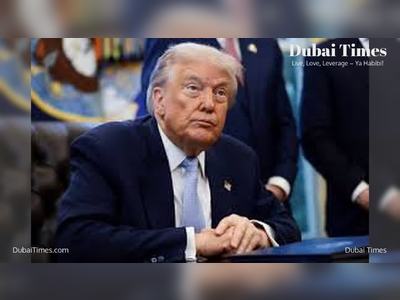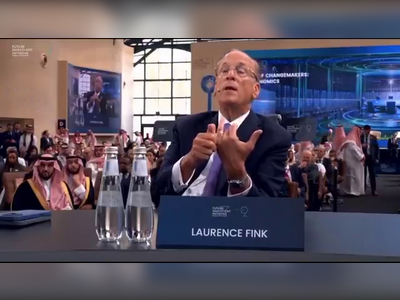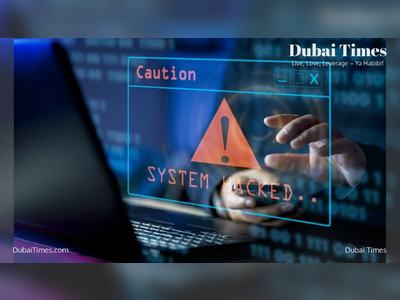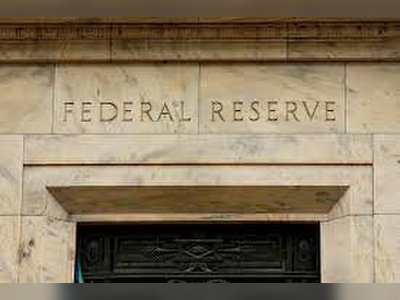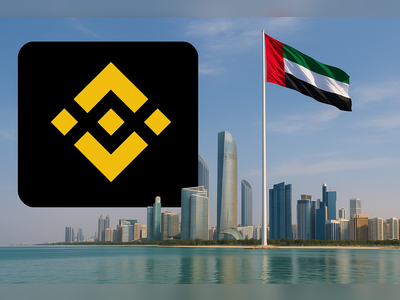
UAE Economy Shows Resilience Amid Global Challenges
The UAE's economic landscape is evolving, buoyed by diversification efforts and strategic investments.
The United Arab Emirates (UAE) continues to demonstrate economic resilience in the face of global challenges, including fluctuating oil prices and geopolitical tensions.
According to recent reports, the UAE's non-oil sector has been a significant driver of growth, with sectors such as tourism, technology, and financial services contributing notably to the national economy.
In recent years, the UAE government has implemented various initiatives aimed at diversifying its economy away from oil dependency.
The Vision 2021 initiative outlines a roadmap focusing on sectors expected to contribute to sustainable economic growth.
Efforts to attract foreign direct investment (FDI) have included the introduction of new business regulations and framework conducive to innovation and business operations.
Tourism remains a cornerstone of the UAE economy, with cities such as Dubai and Abu Dhabi attracting millions of visitors each year.
Recent tourism statistics reveal that Dubai welcomed approximately 16 million international visitors in 2022, with expectations for continued growth in the coming years.
The technology sector is also experiencing significant expansion.
The UAE is positioning itself as a tech hub, fostering a startup ecosystem supported by venture capital and a young, tech-savvy population.
Major tech events, such as GITEX Global, showcase advancements in artificial intelligence, blockchain, and smart city initiatives, further enhancing the UAE’s status as a leader in digital innovation.
Additionally, the financial services sector is witnessing growth, aided by reforms to improve regulatory frameworks.
The UAE Central Bank's ongoing efforts to enhance the banking sector's resilience have included measures to bolster liquidity and promote credit growth.
Despite these positive indicators, the UAE also faces challenges such as global supply chain disruptions and inflationary pressures that could impact economic stability.
The government continues to monitor these developments closely, implementing policies aimed at mitigating adverse effects on the economy.
The UAE’s approach to sustainability is reflected in its commitment to renewable energy, evidenced by the growth of projects like the Mohammed bin Rashid Al Maktoum Solar Park.
Such initiatives are part of the country's broader strategy to reduce carbon emissions and transition towards a more sustainable economic model.
Furthermore, the UAE's ongoing diplomatic engagements in the region aim to bolster trade relationships and foster cooperation on various fronts, including energy security and technology exchange.
As a member of the Gulf Cooperation Council (GCC), the UAE plays a strategic role in regional economic integration efforts.
Overall, the UAE's multifaceted approach to economic development underscores its ambitions to emerge as a leading global economy while adapting to changing global circumstances.
According to recent reports, the UAE's non-oil sector has been a significant driver of growth, with sectors such as tourism, technology, and financial services contributing notably to the national economy.
In recent years, the UAE government has implemented various initiatives aimed at diversifying its economy away from oil dependency.
The Vision 2021 initiative outlines a roadmap focusing on sectors expected to contribute to sustainable economic growth.
Efforts to attract foreign direct investment (FDI) have included the introduction of new business regulations and framework conducive to innovation and business operations.
Tourism remains a cornerstone of the UAE economy, with cities such as Dubai and Abu Dhabi attracting millions of visitors each year.
Recent tourism statistics reveal that Dubai welcomed approximately 16 million international visitors in 2022, with expectations for continued growth in the coming years.
The technology sector is also experiencing significant expansion.
The UAE is positioning itself as a tech hub, fostering a startup ecosystem supported by venture capital and a young, tech-savvy population.
Major tech events, such as GITEX Global, showcase advancements in artificial intelligence, blockchain, and smart city initiatives, further enhancing the UAE’s status as a leader in digital innovation.
Additionally, the financial services sector is witnessing growth, aided by reforms to improve regulatory frameworks.
The UAE Central Bank's ongoing efforts to enhance the banking sector's resilience have included measures to bolster liquidity and promote credit growth.
Despite these positive indicators, the UAE also faces challenges such as global supply chain disruptions and inflationary pressures that could impact economic stability.
The government continues to monitor these developments closely, implementing policies aimed at mitigating adverse effects on the economy.
The UAE’s approach to sustainability is reflected in its commitment to renewable energy, evidenced by the growth of projects like the Mohammed bin Rashid Al Maktoum Solar Park.
Such initiatives are part of the country's broader strategy to reduce carbon emissions and transition towards a more sustainable economic model.
Furthermore, the UAE's ongoing diplomatic engagements in the region aim to bolster trade relationships and foster cooperation on various fronts, including energy security and technology exchange.
As a member of the Gulf Cooperation Council (GCC), the UAE plays a strategic role in regional economic integration efforts.
Overall, the UAE's multifaceted approach to economic development underscores its ambitions to emerge as a leading global economy while adapting to changing global circumstances.
